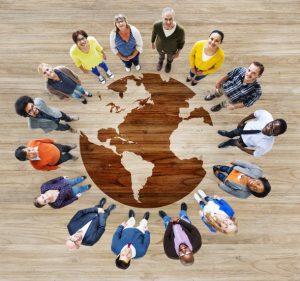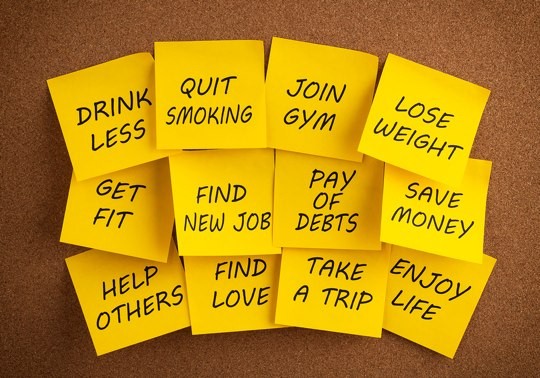Social progress indicators are statistical measures that describe the well-being of individuals or communities. The objective social indicators are numerical figures which represent social facts independent of personal evaluations and subjective social indicators measure of individual perceptions, self-report and evaluations of social conditions. There is an emerging consensus amongst experts that social progress and human well-being should be measured by a combination of both objective and subjective indicators. These indicators are used to assess how well a country is developing in social wellbeing. It helps in finding out what is ha ppening within a country on parameters such as trust, confidence, life satisfaction, well-being and social security.
ppening within a country on parameters such as trust, confidence, life satisfaction, well-being and social security.
Social Progress Index is one such index that covers about 99% of the world’s population; it was created collaboratively by Professor Michael E. Porter at the Harvard Business School, Professor Scott Stern at the MIT Sloan School of Management, and the Social Progress Imperative, a nonprofit group, and ranks these social and environmental measures that underline well-being and opportunity in 2010. It is based on the writings of Amartya Sen, Douglass North and Joseph Stiglitz. The Social Progress Index shows that countries with similar levels of GDP can have very different levels of social progress. While it’s easy to look at the amount of wealth countries generate as a measure of how well they’re doing, economic markers like gross domestic product (GDP) do not tell the whole story, missing out on things people actually need to enjoy a comfortable life – like healthcare, housing, education, and political freedom. The SPI is also related to shelter and sanitation, equality, inclusion, sustainability and personal freedom and safety.
For example, Bangladesh is one of the top performers in ensuring nutrition and basic medical care, and health and wellness, according to the Social Progress Index 2016 prepared on a study on 133 countries. Finland topped the list with a score of 90.09, followed by Canada, Denmark, Australia, and Switzerland. There were 12 components under the broad areas: nutrition and basic medical care; water and sanitation; shelter; personal safety; access to basic knowledge; access to information and communications; health and wellness; and environmental quality; personal rights; personal freedom and choice; tolerance and inclusion; and access to advanced education. In the basic human needs dimension, Bangladesh performs best on nutrition and basic medical care and has most opportunity to improve on the shelter component. In the foundations of wellbeing dimension, Bangladesh scores highest on access to basic knowledge but lags behind on the environmental quality component.
Bhutan, a tiny country in world since 1971 has rejected GDP as the only way to measure progress. In its place, it has supported a new approach to development, which measures prosperity through formal principles of gross national happiness (GNH) and the spiritual, physical, social and environmental health of its citizens and natural environment. For the past three decades, this belief that wellbeing should take preference over material growth has remained a global oddity. The fact is, in the world which is overwhelmed by collapsing financial systems, gross inequity and wide-scale environmental destruction, this tiny Buddhist state’s approach is attracting a lot of interest.
In 2017’s SPI Index, Denmark is the world’s top performer in Social Progress Index by scoring 90.57 out of 100, whereas India at 93rd position outperforms when compared with countries having similar GDP per capita in providing water and electricity facilities. The progress in India is mainly driven by the advancement in providing shelter and access to Information and Communication. India comes in the Lower-Middle tier in the Social Progress Index, along with China, Nepal, Mongolia, Kazakhstan and other Central Asian countries.
The government of any nation in the world is a provider of goods and services that individuals cannot provide for their own selves. Government in this context must find solution to collective action with its citizens. The basic economic infrastructure of human connectivity cascades in parameters such as physical travel such as roads, bridges and ports of all kinds, and increasingly the means of virtual travel, such as broadband. Government is a provider of the social welfare state. Governments should mitigate the inability of citizens to provide for themselves, particularly in the vulnerable conditions of childhood, old age, sickness, disability and unemployment due to economic forces beyond their control. And, what do people need for their survival? Its oxygen, water, food, clothing, shelter and sleep besides sanitation, education and healthcare.
One-third of food produced globally every year does not reach human mouths; it is either lost in transit or wasted by consumers themselves. This amounts to a staggering 1.3 billion tons every year. These frightening figures are contained in a report called ‘Avoiding Future Famines’ released by the United Nations Environment Programe held at Rio+20 summit on sustainable development. Human development does not take place in a social vacuum. We all contribute to development as well as turn down of our nation. I think if citizens decide to achieve happiness and progress, and they help each other wholeheartedly it’s not a difficult task at all!












































